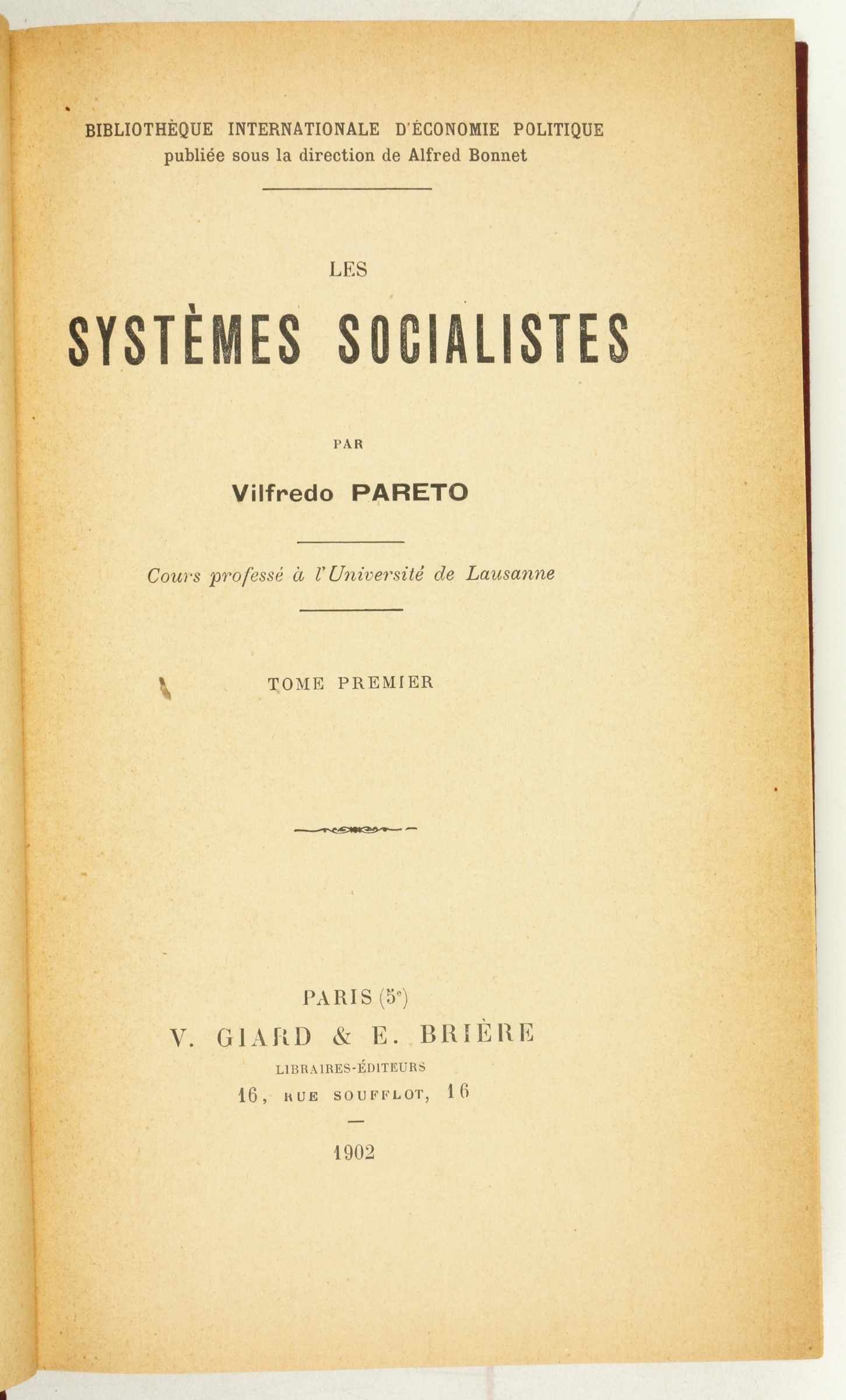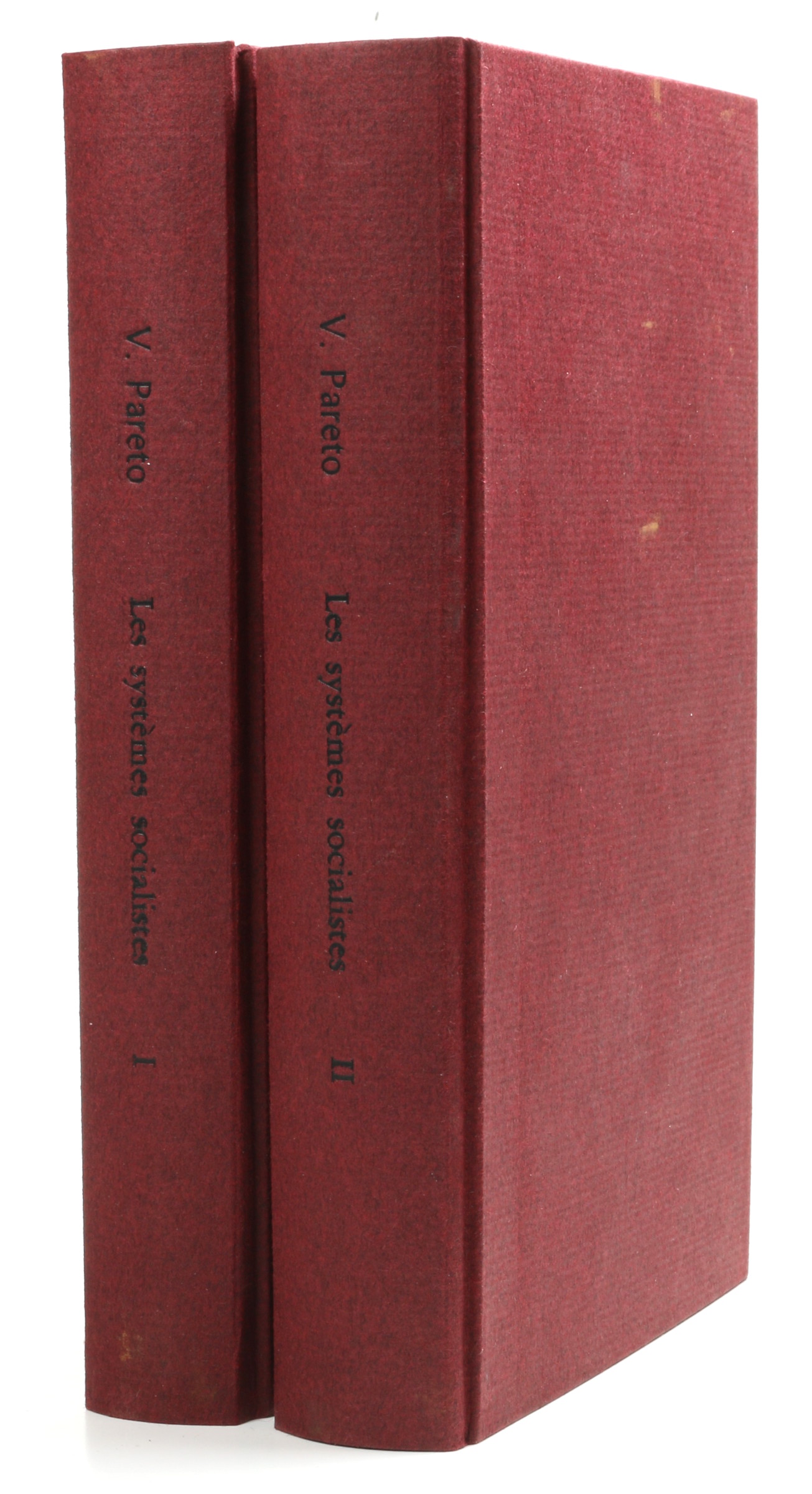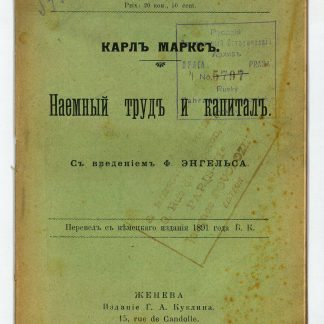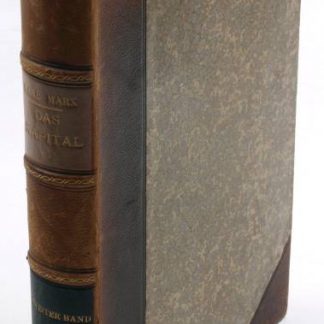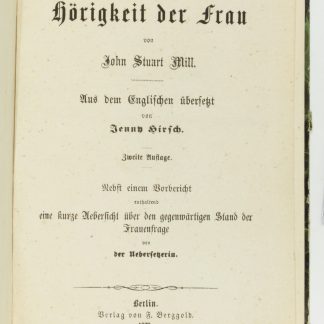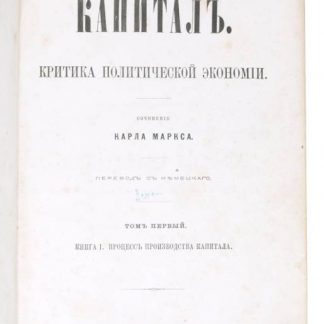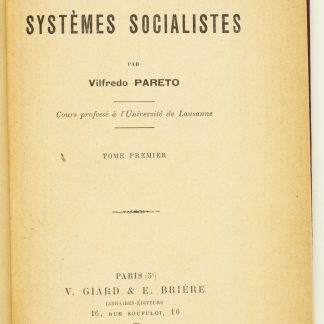Les systèmes socialistes.
8vo. 2 vols. (4), 406, (2) pp. (4), 492 pp. Modern red boards, spines lettered black.
€ 500,00
First edition.
The second major book of the author, analyzing the underlying principles and practical outlook of the various socialist systems. It was the result of Pareto's newly found belief that human action emanated from emotion and passion rather than from reason. "The purpose of this book was to set out considered criticisms of liberal beliefs, and therefore of any doctrine based solely on reason, even socialist doctrines, whilst still recognizing the amazing catalytic effects of passions, instincts, feelings and will-power. Pareto maintained that socialism took advantage of the desire which every man has of transcending his own state, of imagining new roles for himself and his family, of building castles in the air and rationalizing them, of living in a better world. In this way socialism elaborated on powerful myths and political formulae which could be used to spur the masses into action and, through his action, bring about real changes in every sector of individual and collective life. In brief, socialism mobilized new energies. But more than that, it was a powerful and useful way of organizing the existing minorities by providing them with sufficient energy to gain political power. Liberalism calls on reason; socialism plays on feelings. And since feeling is at the root of all human action, socialism is politically more effective than liberalism. Nevertheless both ideologies have the same goal: to allow minorities to organize themselves and to adopt policies which will mobilize sufficient energy to acquire political power. Taking this analysis to its limits, Pareto discovered that a planned socialist economy produces the same results as a market economy, and that a socialist system can be equally as effective as a perfectly liberal system".
A good copy.
New Palgrave III, 802. Stammhammer III, 255, 9.

